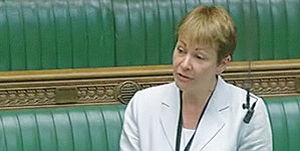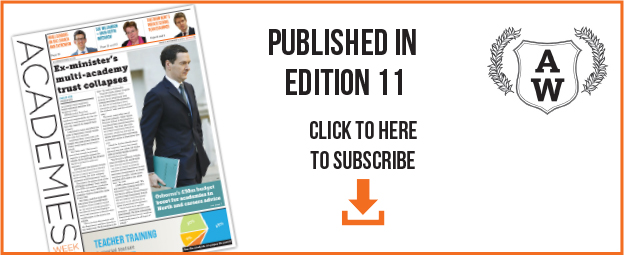Regional school commissioners will need to be more transparent about their decisions when they adopt strong new powers next year, says Caroline Lucas, the Green MP for Brighton Pavilion.
To date, the commissioners (RSCs), part of the government’s new middle tier of accountability for academies, only recommend to ministers which free school projects should go ahead.
But from June next year, they will approve free school applications in their area. The Department for Education (DfE) confirmed this meant that ministers would not normally be involved.
Details of the new powers were mentioned in a guide for free school proposers put out by the DfE in September, but the change has not been publicised.
The decision is “totally unacceptable” unless the public receives more detail about the decisions the commissioners are reaching, says Ms Lucas (pictured).

She wants a register of interests to be published for “unaccountable and opaque” RSCs, and for minutes of the meetings in which they make key decisions to be published.
Taking post in September, regional schools commissioners were widely considered as recognition by the government that Whitehall did not always have access to information about local school needs – though so far their powers to make decisions have been strictly limited.
Appointed by the Secretary of State, the RSCs have a remit of tackling underperformance in academies and boosting the number of academy sponsors. They are supported by a headteacher board made up of local school leaders elected by other local headteachers.
Although RSCs so far only recommend free school projects to ministers, from next June they will make decisions without reference to ministers in most situations.
From March, they will also take responsibility for deciding whether to cancel, defer or enter into funding agreements in the months before an approved free school is due to open, something they have only advised on.
After details of the changes emerged, Ms Lucas said: “We need a fair, transparent, accountable education system that puts the best interests of our children centre stage. Schools aren’t businesses – there should be no hiding place for vested interests.
“To take away decision-making powers from elected ministers and put them, without debate, into the hands of unaccountable and opaque regional schools commissioners would be totally unacceptable. The secretary of state must publish the minutes of regional schools commissioner board meetings and a register of interests, so the public can see how decisions about our schools are being made and why.”
Ms Lucas has tabled a parliamentary question asking education secretary Nicky Morgan what plans she has to increase transparency around RSCs.
A DfE spokesperson said: “Information about the role of regional school commissioners and headteacher boards is publicly available, as are the decisions they make.”
Asked what information was published on RSC decision-making, the spokesperson said that this included a list of open and pipeline academies, and the list of pre-warning notices published by the department.
The spokesperson also said: “RSCs must declare all external interests to avoid any conflicts. A register of these is held by each RSC.
“We are currently considering the best format to publish notes of meetings of headteacher boards.”
EDITOR’S COMMENT
The eight Regional Schools Commissioners (RSC) have been described by some as mini-secretaries of state, although not one of them is elected.
We now know why, as from June of next year they, alone, will be able to decide which new free schools get approved.
Political decentralisation and the “localism agenda” is all the rage, but this is different. Giving unelected civil servants school planning powers is bound to spark a different sort of rage.
Rage, because critics of academisation, which by definition takes schools out of local authority control, will see this latest move as a further erosion of democratic accountability.
That said, the same people who complain about democratic gaps often also say they would welcome less political interference in education decisions.
Ultimately, though, it remains to be seen if a ruling by the RSC would remain final.
What happens if the secretary of state disagrees with an RSC decision after it is has been announced? Could he or she afford to appear powerless and resist stepping in? Would we even know?
Time will tell, but at present the big issue is transparency.
At Schools Week we have interviewed all the RSCs, and we welcome the DfE’s commitment to publish RSC decisions and meeting minutes.







Your thoughts